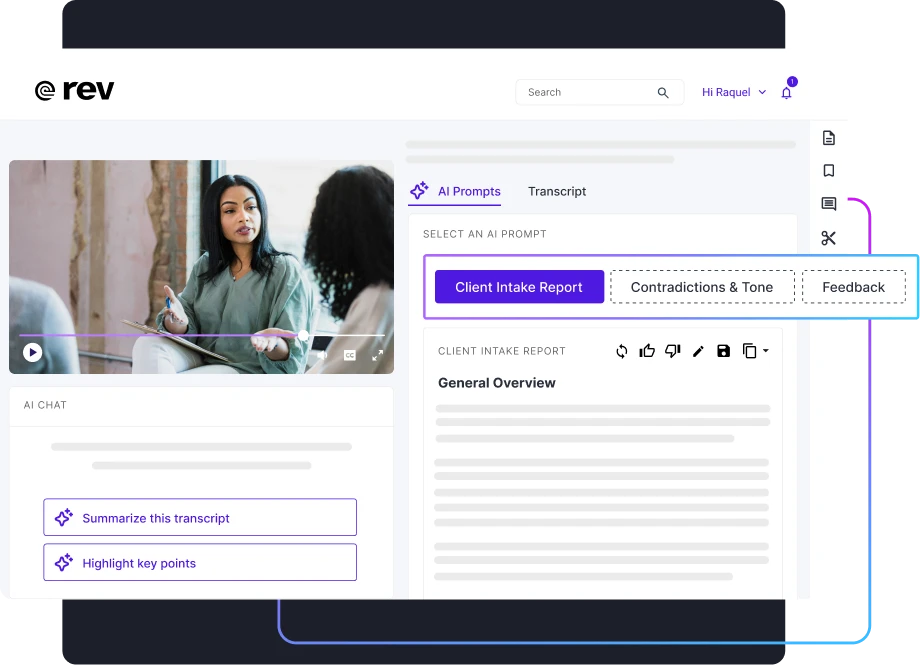Transform Your
Research Workflow
Designed for dynamic consulting and market research teams, Rev surfaces the data you need at lightning speed. Collect conversations from any platform, analyze swiftly, and boost productivity by 120x.
Never Miss a Detail
Forget taking notes while also trying to focus on your interview. Whether you're recording a focus group, conducting multiple interviews, or observing in the field, Rev has you covered. Record and transcribe all your research conversations, no matter where they take place, with up to 99%+ accuracy.

Speed Up Your Analysis
Stop manual coding and get your time back. Customizable for your research tool needs, leverage AI prompts to instantly pull quotes, summaries, and critical data points. Achieve 120x faster results than manual analysis, ensuring precision and speed.

Collaboration Made Efficient
Teamwork that drives results. Effortlessly search, annotate, and collaborate on your qualitative research transcripts — all in one centralized platform. Amplify productivity, whether you're managing solo endeavors or collaborating with a diverse research team.

Secure Your Data
Ensure your work and team stay secure with new SSO, domain-claiming capabilities, and enterprise-level security with HIPAA* and SOC 2 Type II compliance, Data TSL encryption, and NDAs.

Effortless Billing & Data Control
Eliminate messy billing and project management with easy expense tracking and reporting. Track expenses by workspace, project, or team and receive executive-level reports directly to your inbox.
How Rev Boosts Your Productivity
Confident Claims
Get every detail right with 99% accurate human transcription. Skip the double-checking and start creating presentations.
Faster Insights
Pull quotes, themes, trends, and more in seconds. Your insights will practically jump off of the page.
Seamless Workflows
Use safe and secure workspaces to collaborate with your team. Review and edit qualitative research transcripts with ease.
Your Research Team’s
Productivity Sidekick
Researchers worldwide depend on Rev for swift and precise transcripts. Scale your research team’s capabilities and unlock their productivity and efficiency with the Rev platform.



























